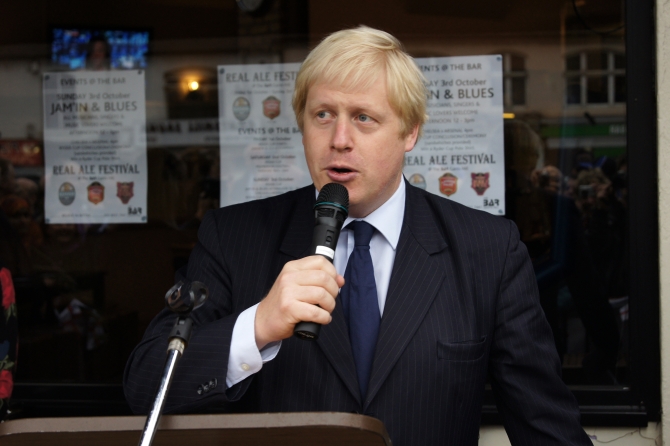The Mayor of London Boris Johnson has today announced the launch of a £20 million fund designed to re-energise the capital’s high streets through creativity and technological innovation – and he has called for more affordable workspace to help small businesses prosper.

The London Regeneration Fund will encourage local authorities, community groups, traders’ associations and workspace providers to come forward with proposals that will assist new and traditional workplaces thrive in today’s rapidly changing city.
To mark the launch of the fund, the Mayor’s Office is hosting a ‘Regen Bootcamp’ where designers, architects, social entrepreneurs and tech innovators will work in partnership with civic, community and business organisations to develop ideas to support London’s high streets and places of work.
The fund is being launched through the London Enterprise Panel, and follows the £129 million already invested by the Mayor (along with the £75 million raised in match funding) that has helped to improve over 85 high streets.
In a statement the Mayor said: “Our dynamic high streets are teeming with economic activity and bristling with creative minds but we need to make sure they are equipped to meet the demands of our ever-changing city.
“This fund will take everything that is good about our local town centres and fuse it with ground-breaking technology and innovation to create high streets that will power our economy for years to come.”
London has around 800,000 small and medium sized businesses which provide almost half of the capital’s employment and generate approximately £430 billion turnover. Johnson believes they have the potential for further growth but many are struggling to find commercial accommodation.
For this reason he is keen to hear proposals that will create new workspaces – such as business incubators, co-working spaces, maker-spaces and artists’ studios – or secure the long-term affordability of existing workspaces. He is also seeking ideas that will enable the capital’s diminishing supply of lower cost commercial stock around high streets and industrial areas to be replenished.
One of the speakers at the Regen Bootcamp is Ross Atkin, author of Manifesto for the Clever City, which argues that data and technology should be embraced to improve high street spaces.
He said: “Running a small design and technology company that’s soon to be homeless due to a 400 per cent rent increase imposed on our co-working space by the building owner I’m acutely aware of the issues that small innovative business face finding suitable and affordable workspace.
He added that he hopes that the bootcamp can identify opportunities for providing more long-term affordable workspaces, not headline-grabbing schemes destined to disappear along with the funding.
Tom Tobia – who established shared making and learning space, Makerversity at Somerset House – is also attending the event, and he welcomes the launch of a scheme which goes beyond simply patching up properties and seeks to find meaningful ways to use high streets to connect communities.
“What we need in the 21st century is sustainable, creative and inclusive high streets and the upcoming bootcamp offers a way to drive forward ideas that realise the creativity and resources of local communities,” he said.
Another speaker is Cynthia Shanmugalingam, the founder of food start up incubator Kitchenette, who points to the role restaurants, coffee shops, street food markets and pop-up spaces can play in breathing new life into forgotten places.
“This fund is really exciting,” she said. “There’s an opportunity here to use food to make sure that our high streets stay inclusive and dynamic places, open to everyone, and representative of every part of this city.”
Along with the stakeholders mentioned above, the fund also welcomes proposals from boroughs, sub and regional partnerships, town teams, business improvement districts and charities within London. The deadline for applications is October 2015. For more information click here.